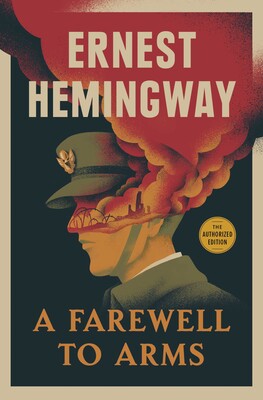Orlion reviewed Farewell to Arms by Ernest Hemingway
Review of 'Farewell to Arms' on 'Goodreads'
4 stars
Compared with more modern writings, I found A Farewell to Arms to be refreshing. Hemingway's minimalist style is in full force here and will continue to polarize the reading public. Sure, one could complain that it is lazy writing (a few years ago, I would have been in the same camp). Done properly it is artful, necessary for the story, and not insulting to the reader.
What do I mean by insulting to the reader? Too often, authors assume that whoever reads their books are the remnants of a Neanderthal race. So they'll tone down the art, the structure, the vocabulary, and always explain exactly what is going on ad nauseum. As an example, after being injured in battle, Henry (the narrator of this novel) is visited by a priest and notes that he is tired. It was very... very refreshing to not have Hemingway beat it into my skull that this would be because there were a lot of deaths after the battle and he was therefore performing last rites for an extended period of time over and over, tiring him physically and spiritually. Nope, Hemingway just noted he was tired and trusted that the reader would be intelligent enough to make the connection. And I do appreciate the flattery.
Further, this lack of narrative details drew me further into the story. By having to work to fill in the blanks, I became more involved with the character and with events going on. The war scenes were much more suspenseful, the escapes more exciting, and the gloomy certainty hanging over the novel more poignant. As a result, every little detail was more important (and let's face it: the novel is mostly little details). To hear Catherine say that the doctor approved of her drinking some beer to keep the developing baby small all ready tells the reader that the eventual birthing is going to be brutal.
Is there some sappy symbolism? You bet. Is the actual love story kinda strange and bizarre? I think it was meant to be, it did start off as a means of distracting the participants from the suffocating gloom of World War I. Is Hemingway clearly an alcoholic? Misogynistic? Etc? At that point, you may want to realize that what you are reading is not a morality tale. Then, you need to realize that it can not fail at what it never set out to do. Hemingway, like in The Sun Also Rises, is writing as a member of the Lost Generation. He and his characters do not know how they fit into a world that cares little for them, and mostly doesn't even notice they exist with wants and needs. A Farewell to Arms helps to show how certain historic events can give birth to a host of persons lost culturally and spiritually.
Now that I have said what I wanted, I think I should also post the poem from whence the title came from. It was written by George Peele addressed to Queen Elzabeth I:
HIS golden locks Time hath to silver turn'd;
O Time too swift, O swiftness never ceasing!
His youth 'gainst time and age hath ever spurn'd,
But spurn'd in vain; youth waneth by increasing:
Beauty, strength, youth, are flowers but fading seen;
Duty, faith, love, are roots, and ever green.
His helmet now shall make a hive for bees;
And, lovers' sonnets turn'd to holy psalms,
A man-at-arms must now serve on his knees,
And feed on prayers, which are Age his alms:
But though from court to cottage he depart,
His Saint is sure of his unspotted heart.
And when he saddest sits in homely cell,
He'll teach his swains this carol for a song,--
'Blest be the hearts that wish my sovereign well,
Curst be the souls that think her any wrong.'
Goddess, allow this aged man his right
To be your beadsman now that was your knight.

